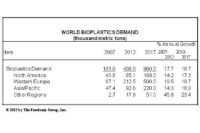Victim of Success
The story of a trending alcoholic beverage

Unless you have been out of the United States for quite some time, you likely know about White Claw and other hard seltzers. Sure, if you’re a product of the ’90s, you remember Zima hard soda in the clear bottle with bright blue and black labeling. Raise your hand if you never tried one, just to try it. Nobody? Exactly.
Consumers usually want to try a fun new adult beverage, especially during the summer — with backyard barbeques, pool parties, baseball games and beach bonfires. The most popular at the minute is White Claw. The fizzy “spiked water,” as it is called, has less sugar than those previously on the market, and comes in Natural Lime, Mango, Black Cherry, Ruby Grapefruit and Raspberry flavors.
White Claw is made with a blend of seltzer water, the brand’s gluten-free alcohol base and a hint of fruit flavor. With 100 calories, 2g carbs and 5% ABV, it’s no wonder that it’s so popular — especially for consumers seeking an adult drink with low calories, low sugar and low carbohydrates.
The brand recently came out with limited-edition White Claw Pure Hard Seltzer, an alternative to vodka & soda. With zero carbs, 100 calories and a clean taste, enjoy it straight or with a flavor twist.
White Claw is owned by Mark Anthony Brands, which also owns Mike’s Hard Lemonade. In 2016, the same year WC was introduced, Anheuser-Busch BUD bought SpikedSeltzer, which led to Bon & Viv. And Boston Beer began manufacturing Truly, another popular hard seltzer.
Spiked seltzer is a billion dollar industry. Sales surpassed $1 billion for the past year ending in August — nearly 200% growth compared to the previous year, according to Nielsen. Hard seltzer makes up 2.5% of the alcohol market, up from 0.9% a year ago.
The White Claw brand alone is up 250% year over year. And Anheuser-Busch wants a bigger slice of the pie. Last month, the beer giant launched a new line of spiked seltzer under the Natural Light brand, an affordable product marketed to college-aged drinkers.
The problem? If you want to try this new trendy beverage, you’ll need to act fast. The United States is in short supply — and it doesn’t look like the shortage will end until sometime in 2020. Not good for White Claw or its loyal consumers.
According to an article by CNN, White Claw sales have skyrocketed over the past year, according to the company and industry analysts. The company can’t keep up with demand, so White Claw has purposefully limited supply to ensure it can continually serve all of its markets.
The distribution practice is called allocation, and it happens a lot. It has been in place for a year for White Claw, according to Mark Anthony Brands. Stores across the U.S. receive a constant flow of the product, but distributors aren't increasing the volume of shipments to stores that run out.
Since I have not yet tried White Claw, I will be out scouring the local markets for this festive and light new drink that I now must try. Why is it that products that are not available seem the most intriguing?
Looking for a reprint of this article?
From high-res PDFs to custom plaques, order your copy today!






